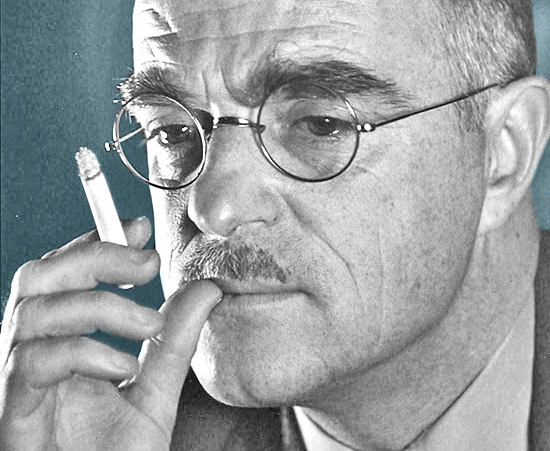
By June 1940, Europe had already been at war for ten months. In this letter, playwright and novelist Thornton Wilder writes to Sibyl, Lady Colefax, a confidant and admirer living in London, about the shift of isolationist sympathies in America and his anticipation of the coming crisis.
The MacDowell Colony
Peterborough, N.H.
June 14, 1940
Dear, dear Sibyl:
What times, what things to live through! The mind cannot grasp even a small part of the agony undergone, and of the further disasters possible.
Your word months ago that you were sure it would be a long war terrified me, but now I draw comfort from it. Long enough to sustain the best we know, and long enough for America to help.
A few days ago I received a letter from Lynn and Alfred asking me to telegraph the President and my Senator in answer to Conant’s (of Harvard) appeal to expedite the means whereby material could be sent abroad; I had already sent off the telegrams. All too slowly the formalities in Washington are unrolling to some effectiveness.
The Middle West remains obstinately “isolationist”, but even that is thawing with a swiftness unprecedented among us—but can it be swift enough to match the acceleration of historical action as we see it taking place abroad?
Each day seems more in crisis than the last— in a few minutes I go back to the main house to see what happened today—and so, each night and each morning.
June 17, 1940
Waiting. Waiting.
And now the news of France’s capitulation.
All I can do is send you my love and a thousand thoughts you can divine, and over here to exert myself in every way I know to make people realize that our aid and participation is essential—to some I can put it (for it is no less true) as pure self-interest; to others and to myself I put it, “Humanitarianism = Civilization.” A civilization without instinctive brother-participation with the Thing-France and the Thing-England is no civilization.
Let the thought of me enter as a whisper into your dejected moments and as a voice into your moments of courage, fortitude and hope.
Ever affectionately,
Thornton
FURTHER READING
For an in-depth documentary about the fall of France and the general military climate surrounding 1940, click here


